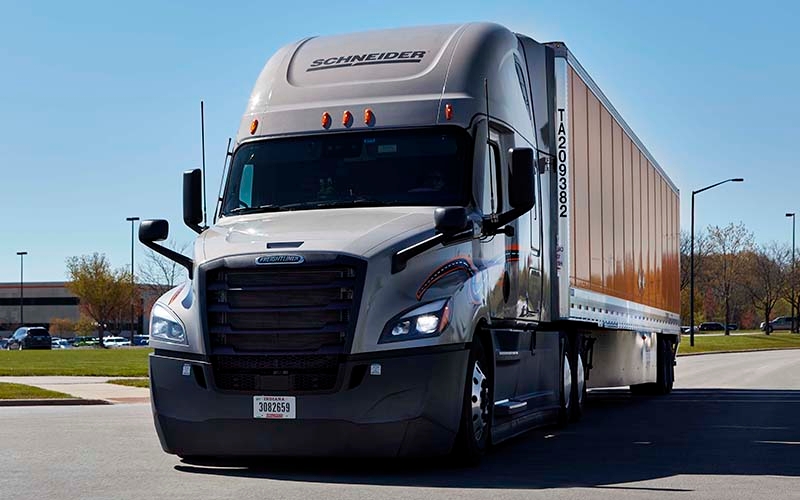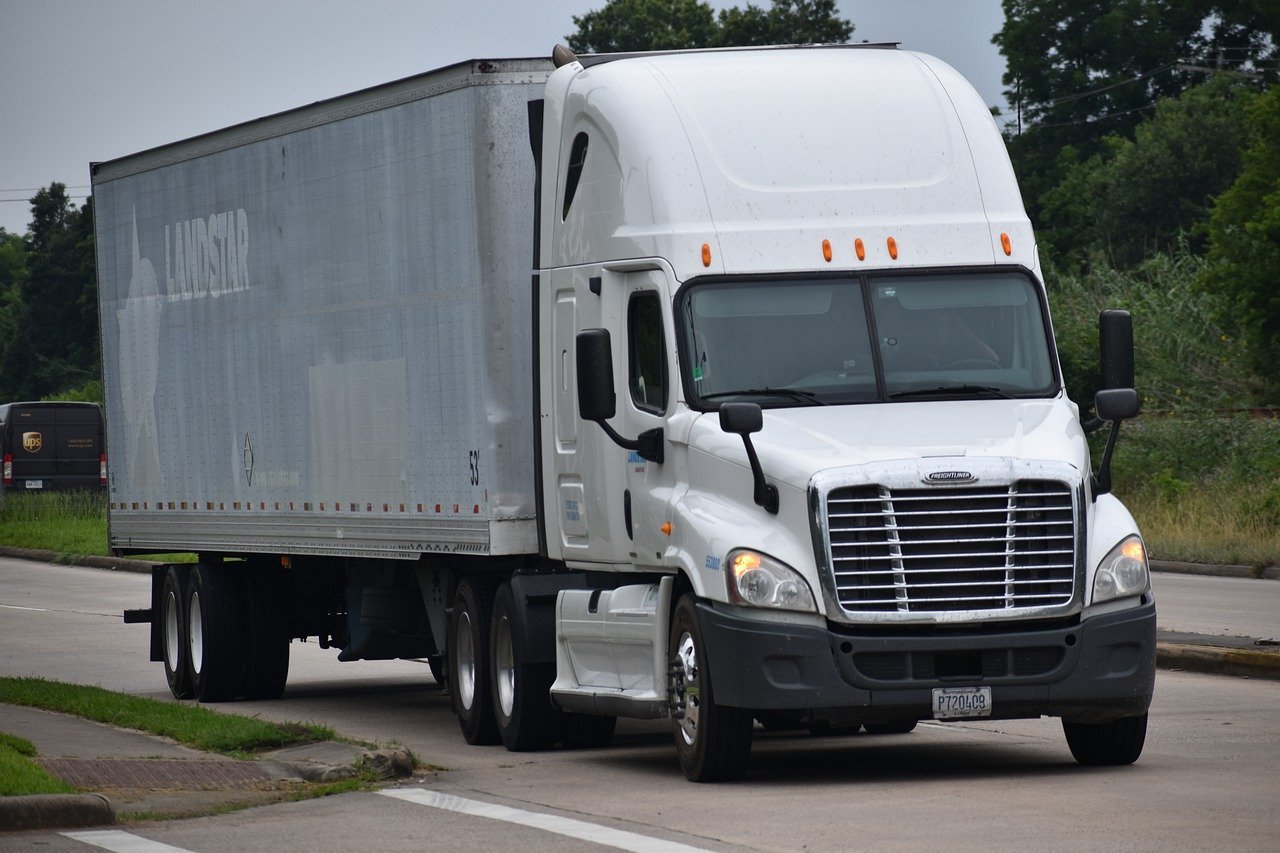
Semi trucks need to be weighed to ensure they are within legal weight limits. Weighing them helps prevent damage to roads and bridges and maintains safety for all drivers.
Weighing semi trucks is essential for road safety and infrastructure maintenance. A truck’s weight directly impacts road conditions and can lead to costly repairs and safety hazards when exceeded. By ensuring trucks are within legal weight limits, weighing stations help prevent accidents and preserve road quality.
This process is crucial for maintaining a smooth flow of traffic and preventing unnecessary wear and tear on roads and bridges. Additionally, weighing trucks helps enforce regulations and ensures fair competition among trucking companies. This practice ultimately contributes to safer roads and a more efficient transportation system.

Credit: schneiderjobs.com
Navigate As You Want:
Importance Of Weighing Semi Trucks
Ensuring road safety is crucial for both truck drivers and other road users. Weighing semi trucks plays a significant role in achieving this. Overloading can lead to numerous dangers such as increased braking distances, reduced maneuverability, and uneven weight distribution, making accidents more likely. Weigh stations are set up to prevent overloading and ensure that trucks adhere to weight limits imposed by transportation authorities. By weighing trucks, authorities can identify potential hazards and take appropriate actions to maintain infrastructure. Overweight trucks can cause damage to roads and bridges, leading to costly repairs and compromising the overall condition of the transportation network. Regular weighing helps to identify any overweight trucks and enables authorities to take necessary steps to protect road infrastructure. Overall, the process of weighing semi trucks plays a vital role in enhancing overall road safety and reducing potential risks associated with overloaded trucks.
Methods Of Weighing Semi Trucks
Semi trucks have to be weighed to ensure compliance with regulations. Weigh stations are commonly used for this purpose, where trucks are directed to pull onto designated scales for measurement. Portable scales are another method, allowing for weighing at any location. Weigh-in-motion systems are increasingly utilized, enabling trucks to be weighed while in motion on the road, improving efficiency and reducing congestion at weigh stations.
Legal Requirements For Weighing Semi Trucks
When it comes to weighing semi trucks, legal requirements are crucial to ensure safety and compliance. Weight limits and regulations dictate the maximum weight that a semi truck can carry, preventing wear and tear on roads and bridges. Non-compliance with these regulations can result in hefty fines, penalties, and even vehicle impoundment. Carriers and drivers must adhere to the set standards and comply with weighing procedures to avoid the consequences of non-compliance.
Technologies Used For Weighing Semi Trucks
Today, semi trucks are required to be weighed to ensure compliance with weight regulations and safety standards. To accurately measure the weight of these trucks, various technologies are used.
Load cells and strain gauge sensors are commonly employed in weighing semi trucks. Load cells use the principle of converting force into an electrical signal to provide accurate weight measurements. Strain gauge sensors, on the other hand, detect strain or deformation in a material when subjected to weight, allowing for precise weight calculations.
Axle load sensors are another technology used for weighing semi trucks. These sensors are strategically placed on the axles of the truck and provide real-time weight data for each axle. This information helps determine if the load is evenly distributed and within the allowable limits.
RFID and GPS tracking systems are also utilized in weighing semi trucks. These technologies provide accurate identification and location data, ensuring that the correct vehicle is being weighed accurately and that the weight data is associated with the correct truck.
Overall, these technologies play a crucial role in ensuring the safety and compliance of semi trucks on the roads. By accurately weighing these vehicles, potential hazards related to overloaded or improperly balanced loads can be minimized, ultimately making the roads safer for everyone.
Impact Of Weighing Semi Trucks On The Industry
Semi trucks have to be weighed to ensure safety on the roads and highways. This practice has a profound impact on the trucking industry by preventing overloading and ensuring compliance with weight regulations.
Improved Efficiency And Fuel Economy
Weighing semi trucks plays a significant role in improving efficiency and fuel economy. By accurately measuring the weight of these vehicles, transportation companies can optimize their load distribution, ensuring that trucks are not overloaded. This helps to minimize fuel consumption and maximize overall efficiency.
Reduced Road Damage
Another important reason for weighing semi trucks is to reduce road damage. Overloaded trucks can cause excessive wear and tear on roadways, leading to costly repairs and increased maintenance expenses. By monitoring and enforcing weight limits, authorities can ensure that trucks carrying excessive loads are identified and fined accordingly, thereby reducing road damage and prolonging the lifespan of the infrastructure.
Fairness In Trucking
Weighing semi trucks also promotes fairness in the trucking industry. It ensures that all trucking companies abide by the weight regulations in place, preventing unfair competition and maintaining a level playing field for all operators. By preventing overweight trucks from gaining an advantage, weighing systems help maintain fairness and integrity within the industry.
Credit: www.quora.com

Credit: www.jdpower.com
Frequently Asked Questions On Why Do Semi Trucks Have To Be Weighed
Why Do Semi Trucks Need To Be Weighed?
Semi trucks need to be weighed to ensure they comply with weight limits imposed by the government. This helps prevent excessive wear and tear on roads, bridges, and infrastructure. Weighing also ensures that truck drivers are not exceeding their allowable load capacity, promoting safety on the road.
How Are Semi Trucks Weighed?
Semi trucks are typically weighed at designated weigh stations or truck scales. They drive onto the scale, which measures the truck’s weight. There are both static weigh stations where trucks stop and drive-through systems that allow for continuous weighing. These measurements help enforce weight restrictions and regulations, promoting road safety and preventing damage to transportation infrastructure.
What Happens If A Semi Truck Is Overweight?
If a semi truck is found to be overweight during weigh station checks, it can face serious consequences. These can include hefty fines, truck and driver citations, delayed delivery times, and potential vehicle impoundment. Overweight trucks also pose risks to road safety by increasing the chances of accidents, road damage, and bridge collapses.
Therefore, it is essential for truck drivers and companies to comply with weight restrictions.
Conclusion
Weighing semi trucks is a crucial safety measure that ensures compliance with regulations and protects road infrastructure. It helps prevent accidents caused by overloaded trucks and helps maintain the integrity of highways and bridges. By weighing these vehicles, authorities can enforce weight limits, prevent wear and tear on roads, and ultimately ensure safer transportation for everyone.
So, next time you see a weigh station, know that its purpose is to maintain the safety and efficiency of our roads.





